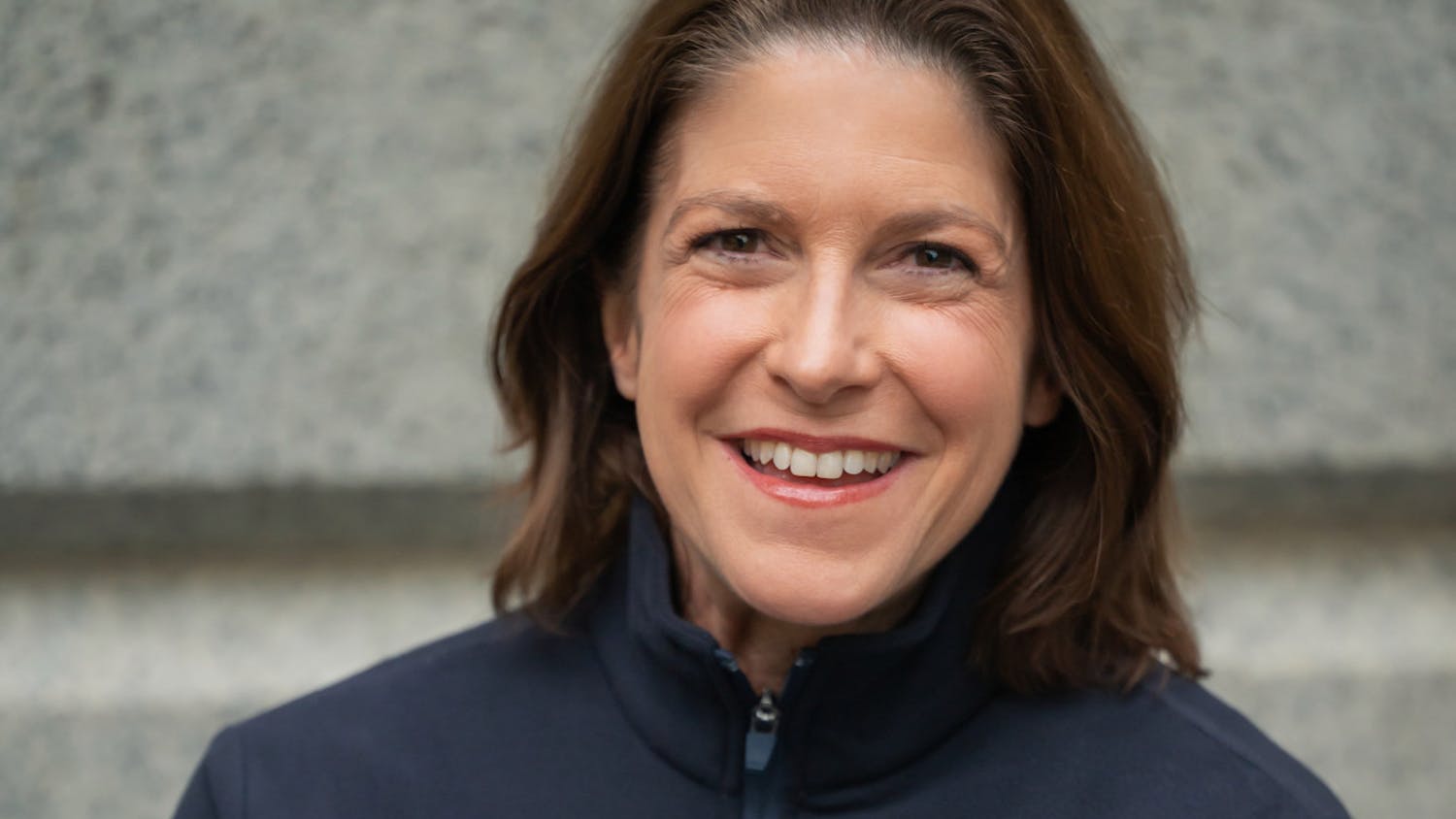Six panelists, diverse in their experiences with body image and in the social spheres they occupy on campus, shared perspectives on a range of topics including disordered eating, race and disabilities in front of approximately 60 people in Collis Common Ground on Friday as part of a panel organized to promote campus discussion about eating disorders and body image.
The event, titled the "Real Beauty Initiative Panel," was organized by Nina Montgomery '14, the summer president of Kappa Delta Epsilon sorority, and Kate Shelton '14, a member of KDE and president of the Real Beauty Initiative.
"People don't talk about it here," she said. "We thought that by putting people up on a panel that people knew, it would make people realize we can't ignore this anymore, it's time to talk about it."
Blaine Ponto '14 recounted her struggle with bulimia in high school and how she obsessed over her weight at Dartmouth while trying to remain eligible for a Reserve Officers' Training Corps scholarship, for which she had to maintain a certain body fat percentage. While Ponto was home during her freshman winter, she discovered that her history with eating disorders made her ineligible to receive the scholarship.
Ponto said she then tried playing rugby, which helped her accept her body the way it is.
"Rugby takes all body types," she said. "Big girls, small girls, muscle-y girls. I realized hey, my body is good for something."
Ponto encouraged audience members to find activities that take advantage of their body types.
"There are things at Dartmouth, things in the world, that you can do just the way you are," she said.
For Jonathan Sigworth '12, an accident at age 19 that left him paralyzed did not change his values as a person but contributed to self-esteem issues.
Because of his accident, his body image is largely out of his control, he said.
"Whatever body image standards exist, I am quite unable to adhere to them," Sigworth said.
Sigworth, who transferred to Dartmouth in 2009 from Wesleyan University, said his body image sometimes led him to question his worth, because he is a minority student and the only Dartmouth student in a wheel chair.
Sigworth said that sharing his feelings with friends has helped him as he grapples with challenges.
"Beauty is about how much you value yourself and are valued by others," he said.
Lindsay, who wished to be identified only by her first name, spoke of her two best friends from high school who struggled with eating disorders during their senior year. Katie Randolph '14 read Lindsay's piece in her absence.
Lindsay said she never expected her friends talented students and athletes to develop eating disorders. As time passed, they could no longer start for their sports teams and lost the ability to compete because they had so little energy.
Lindsay described how her friends' eating disorders had a strong impact on her, since she spent every meal monitoring their eating, and coaches and teachers would turn to her to check in on her friends' statuses.
Lindsay encouraged audience members to support friends with eating disorders, even if they struggle to understand them. She also said that eating disorders are lifelong problems.
"As I have learned from this experience, eating disorders are not like a common cold they don't go away in a week, a month or even a few years," she said. "Unfortunately, it is a mentality that stays with you for life."
Bronson Green '14, captain of the men's football team, participated in the panel to represent the athlete perspective, since many misconceptions exist about athletes regarding their body image.
"A lot of times people think athletes are perfect," he said.
In order to qualify for the eight to 12-year-old football league, Green tried to lose weight, using a fad diet and water pills and exercising with trash bags so he could sweat and drop pounds.
During college recruiting, Green said his height rendered him ineligible to play at many schools. At one of the schools that was considering recruiting him, he would have had to lie about his height by wearing lifts in his shoes to play.
Many football players face body image issues because they are forced to gain weight to increase their force, he said.
"I see it here at Dartmouth," he said. "Kids eat and eat and eat it's unhealthy. A kid gets recruited and has to put on 50 pounds. The problem is kids face a lot of pressure socially. Their bodies are changed not by choice. It affects them socially their self-esteem is completely shot."
Celeste Winston '14 read a creative speech by Mayowa Willoughby '14 that dealt with Willoughby's experience as a Nigerian-American woman at Dartmouth.
Willoughby criticized women's groups on campus and said that they frequently seem to only target straight, white women.
She also said she has struggled at Dartmouth because she does not fit in with mainstream beauty expectations.
"It is harrowing realizing that what is beautiful, valued and attractive looks nothing like you," she said.
Shelton said a foot injury caused her to relapse into anorexic tendencies during her sophomore winter. Her disorder was especially bad while she was on the French Foreign Study Program in Paris.
Shelton said she lied about eating meals and was able to get away with it because of the schedule of the trip.
"I shouldn't have been in Paris," she said. "I should have been taken off the FSP because I was not well. Dartmouth College needs to be more aware of what happens to students on their off-campus programs."
Shelton said her wake-up call came when she realized she weighed only a few pounds more than an 11-year-old family friend.
Montgomery said she was inspired to plan the panel after helping some of her friends during the Spring term. Shelton, who is also an Eating Disorder Peer Advisor, helped Montgomery intervene appropriately, and the two began discussing body image at Dartmouth.
"I think we need to recognize as a community the faults of this place," Montgomery said. "You can't change the culture overnight you need to do tangible things. That's why we did this panel."
The panel was sponsored by the Real Beauty Initiative and Kappa Delta Epsilon sorority.



